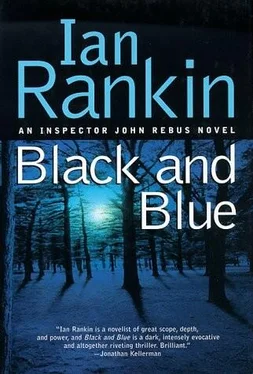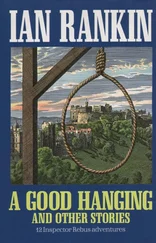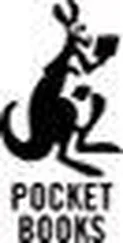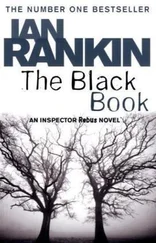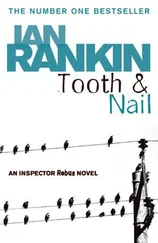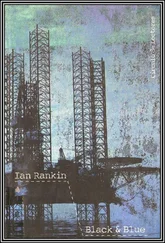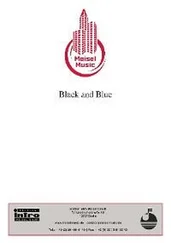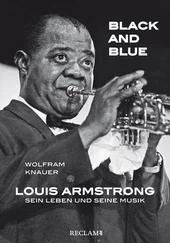Ian Rankin - Black and Blue
Здесь есть возможность читать онлайн «Ian Rankin - Black and Blue» весь текст электронной книги совершенно бесплатно (целиком полную версию без сокращений). В некоторых случаях можно слушать аудио, скачать через торрент в формате fb2 и присутствует краткое содержание. Год выпуска: 1997, ISBN: 1997, Издательство: St. Martin's Minotaur, Жанр: Полицейский детектив, на английском языке. Описание произведения, (предисловие) а так же отзывы посетителей доступны на портале библиотеки ЛибКат.
- Название:Black and Blue
- Автор:
- Издательство:St. Martin's Minotaur
- Жанр:
- Год:1997
- ISBN:978-0312167837
- Рейтинг книги:5 / 5. Голосов: 1
-
Избранное:Добавить в избранное
- Отзывы:
-
Ваша оценка:
- 100
- 1
- 2
- 3
- 4
- 5
Black and Blue: краткое содержание, описание и аннотация
Предлагаем к чтению аннотацию, описание, краткое содержание или предисловие (зависит от того, что написал сам автор книги «Black and Blue»). Если вы не нашли необходимую информацию о книге — напишите в комментариях, мы постараемся отыскать её.
Black and Blue — читать онлайн бесплатно полную книгу (весь текст) целиком
Ниже представлен текст книги, разбитый по страницам. Система сохранения места последней прочитанной страницы, позволяет с удобством читать онлайн бесплатно книгу «Black and Blue», без необходимости каждый раз заново искать на чём Вы остановились. Поставьте закладку, и сможете в любой момент перейти на страницу, на которой закончили чтение.
Интервал:
Закладка:
So he’d asked himself a question: how badly did he want the Upstart?
And had answered it: very badly. Very badly indeed. He spent the afternoon on and around George IV Bridge — the National Library of Scotland and the Central Lending Library. He had a reader’s card for the National Library, had done research there in the past — business; plus some reading on the Second World War, his main hobby these days. He browsed in local secondhand bookshops too, asking if they had any true-life crime. He told staff the Johnny Bible murders had kindled his interest.
‘We only have half a shelf of true crime,’ the assistant in the first shop said, showing him where it was. Bible John feigned interest in the books, then returned to the assistant’s desk.
‘No, nothing there. Do you also search for books?’
‘Not as such,’ the assistant said. ‘But we keep requests...’ She pulled out a heavy old-style ledger and opened it. ‘If you put down what you’re looking for, your name and address, if we happen across the book we’ll get in touch.’
‘That’s fine.’
Bible John took out his pen, wrote slowly, checking recent requests. He flicked back a page, eyes running down the list of titles and subjects.
‘Don’t people have such varied interests?’ he said, smiling at the assistant.
He tried the same ploy at three further shops, but found no evidence of the Upstart. He then walked to the National Library’s annexe on Causewayside, where recent newspapers were kept, and browsed through a month’s worth of Scotsman s, Herald s and Press and Journal s, taking notes from certain stories: assaults, rapes. Of course, even if there was an early, failed victim, it didn’t mean the attempt had gone reported. The Americans had a word for what he was doing. They called it shitwork.
Back in the National Library proper, he studied the librarians, looking for someone special. When he thought he’d found what he was looking for, he checked the library’s opening hours, and decided to wait.
At closing time, he was standing outside the National Library, sunglasses on in the mid-evening light, crawling lines of traffic separating him from the Central Library. He saw some of the staff leave, singly and in groups. Then he spotted the young man he was looking for. When the man headed down Victoria Street, Bible John crossed the road and followed. There were a lot of pedestrians about, tourists, drinkers, a few people making their way home. He became just another of them, walking briskly, his eyes on his quarry. In the Grassmarket, the young man turned into the first available pub. Bible John stopped and considered: a quick drink before heading home? Or was the librarian going to meet friends, maybe make an evening of it? He decided to go inside.
The bar was dark, noisy with office workers: men with their suit jackets draped over their shoulders, women sipping from long glasses of tonic. The librarian was at the bar, alone. Bible John squeezed in beside him and ordered an orange juice. He nodded to the librarian’s beer glass.
‘Another?’
When the young man turned to look at him, Bible John leaned close, spoke quietly.
‘Three things I want to tell you. One: I’m a journalist. Two: I want to give you £500. Three: there’s absolutely nothing illegal involved.’ He paused. ‘Now, do you want that drink?’
The young man was still staring at him. Finally he nodded.
‘Is that yes to the drink or yes to the cash?’ Bible John was smiling too.
‘The drink. You better tell me a little more about the other.’
‘It’s a boring job or I’d do it myself. Does the library keep a record of books consulted and borrowed?’
The librarian thought about it, then nodded. ‘Some computerised, some still on cards.’
‘Well, the computer will be quick, but the cards may take you a while. It’ll still be easy money, believe me. What about if someone came in to consult old newspapers?’
‘Should be on record. How long ago are we talking about?’
‘It would be in the past three to six months. The papers they’d be looking at would be from 1968 to ’70.’
He paid for two drinks with a twenty, opened his wallet so the librarian could see plenty more.
‘It might take a while,’ the young man said. ‘I’ll have to cross-reference between Causewayside and George IV Bridge.’
‘There’s another hundred if you can hurry things along.’
‘I’ll need details.’ Bible John nodded, handed over a business card. It stated name and a phony address, but no phone number.
‘Don’t try to get in touch. I’ll phone you. What’s your name?’
‘Mark Jenkins.’
‘OK, Mark.’ Bible John lifted out two fifties, tucked them into the young man’s breast pocket. ‘Here’s something on account.’
‘What’s it all about anyway?’
Bible John shrugged. ‘Johnny Bible. We’re checking a possible connection with some old cases.’
The young man nodded. ‘So what books are you interested in?’
Bible John handed him a printed list. ‘Plus newspapers. Scotsmans and Glasgow Heralds , February ’68 to December ’69.’
‘And what do you want to know?’
‘People who’ve been looking at them. I’ll need names and addresses. Can you do it?’
‘Actual newspapers are held at Causewayside, we only stock microfilm.’
‘What are you saying?’
‘I may need to ask a colleague at Causewayside to help.’
Bible John smiled. ‘My paper’s not short of a bob or two, as long as we get results. How much would your friend want...?’
The Whispering Rain
Mind me when mischief befalls me
from the cruel and the vain
The Bathers, ‘Ave the Leopards’5
The Scots language is especially rich in words to do with the weather: ‘dreich’ and ‘smirr’ are only two of them.
It had taken Rebus an hour to drive to Raintown, but another forty minutes to find Dumbarton Road. He hadn’t been to the station before: Partick cop-shop had relocated in ’93. The old station, the ‘Marine’, he’d been there, but not the new place. Driving in Glasgow could be a nightmare for the uninitiated, a maze of one-way streets and ill-signposted intersections. Rebus twice had to leave his car and call in for instructions, both times queuing outside phone boxes in the rain. Only it wasn’t real rain, it was smirr, a fine spray-mist which drenched you before you knew it. It was blowing in from the west, moisture straight from the Atlantic Ocean. It was all Rebus needed first thing on a dreich Monday morning.
When he got to the station, he noticed a car in the car park, two figures inside, smoke billowing from an open window, radio playing. Reporters, had to be. They were the graveyard shift. At this point in a story, reporters divvied the hours into shifts, so they could go off and be somewhere else. Whoever was left on recce was on a promise to buzz any breaks in the story to the other journalists pronto.
When he finally pushed open the station door, there was scattered applause. He walked up to the desk.
‘Finally made it, then?’ the Duty Sergeant asked. ‘Thought we were going to have to send out search parties.’
‘Where’s CI Ancram?’
‘In a meeting. He said for you to go up and wait.’
So Rebus went upstairs, and found that the CID offices had become a sprawling Murder Room. There were photographs on the walls: Judith Cairns, Ju-Ju, in life and in death. More photos of the locus — Kelvingrove Park, a sheltered spot surrounded by bushes. A work rota had been posted — interview grind mostly, shoe-leather stuff, no big breaks expected but you had to make the effort. Officers clattered at keyboards, maybe using the SCRO computer, or even HOLMES — the major enquiry database. All murder cases — excluding those solved straight off — were put on the Home Office Large Major Enquiry System. There were dedicated teams — detectives and uniforms — who operated the system, typing in data, checking and cross-referencing. Even Rebus — no great fan of new technology — could see the advantages over the old card-index system. He stopped by a computer terminal and watched someone entering a statement. Then, looking up, he saw a face he recognised, walked up to its owner.
Читать дальшеИнтервал:
Закладка:
Похожие книги на «Black and Blue»
Представляем Вашему вниманию похожие книги на «Black and Blue» списком для выбора. Мы отобрали схожую по названию и смыслу литературу в надежде предоставить читателям больше вариантов отыскать новые, интересные, ещё непрочитанные произведения.
Обсуждение, отзывы о книге «Black and Blue» и просто собственные мнения читателей. Оставьте ваши комментарии, напишите, что Вы думаете о произведении, его смысле или главных героях. Укажите что конкретно понравилось, а что нет, и почему Вы так считаете.
